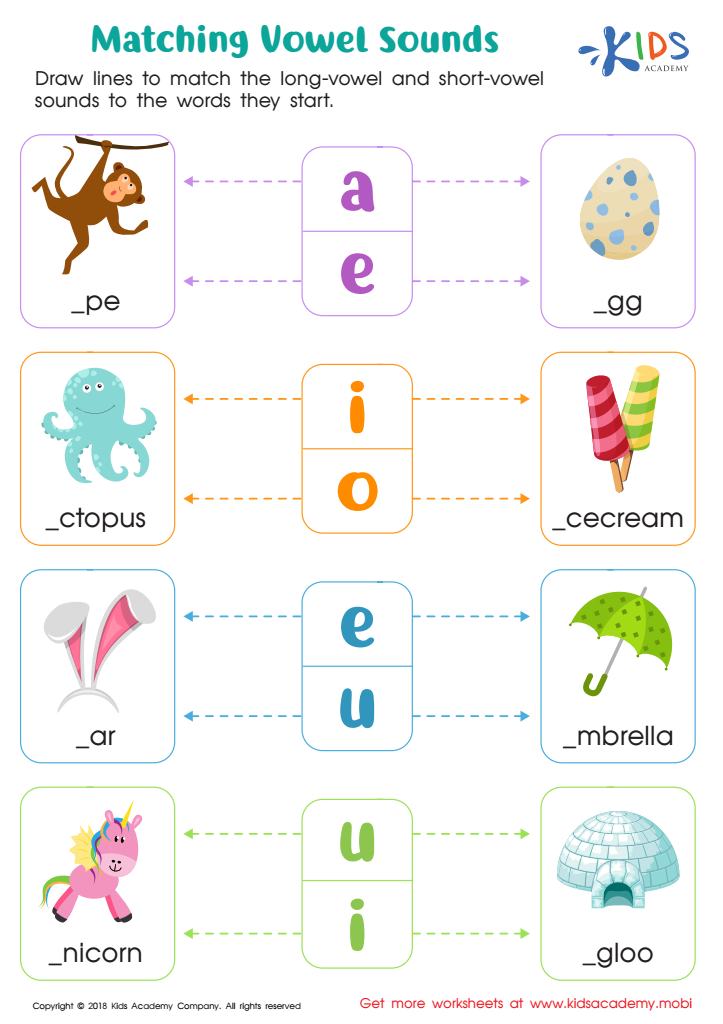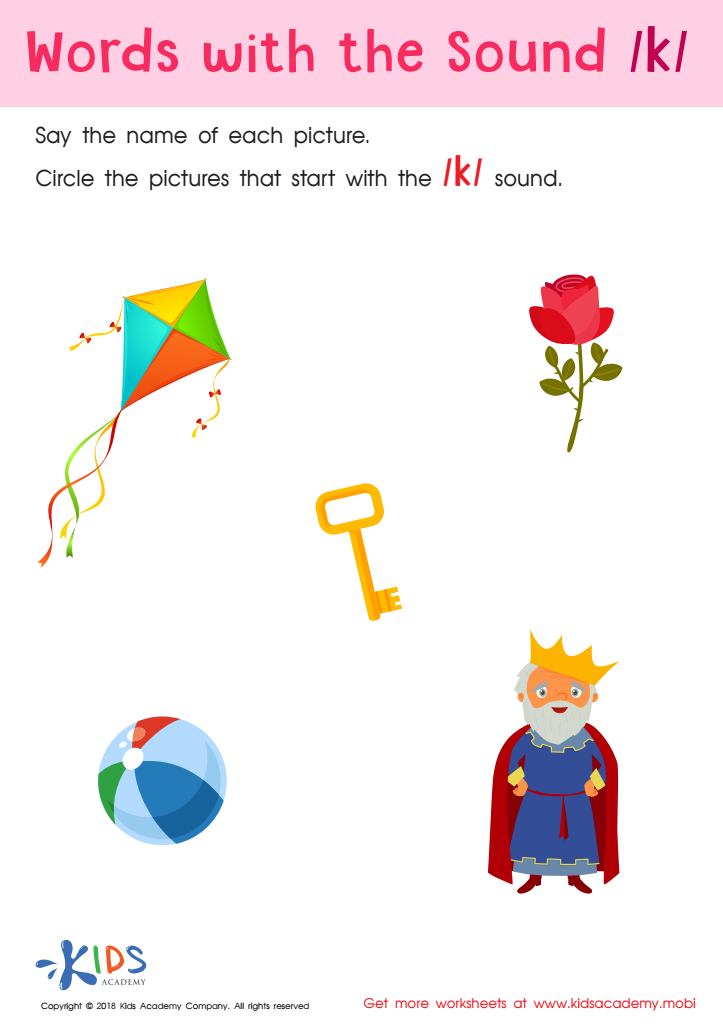Reading proficiency Alphabet Worksheets for 4-Year-Olds
3 filtered results
-
From - To
Our Reading Proficiency Alphabet Worksheets for 4-Year-Olds are designed to foster early literacy skills by offering engaging and educational activities. Perfect for preschoolers, these worksheets help children recognize letters, understand sounds, and start forming basic words. Incorporating fun visuals and interactive tasks, our resources promote a positive learning experience that keeps young learners motivated. By regularly practicing with our alphabet worksheets, children build a strong foundation for reading proficiency, setting the stage for future academic success. Parents and educators can easily integrate these worksheets into daily routines to support and enrich a child's journey towards becoming a confident and enthusiastic reader.


Matching Vowel Sounds Worksheet


Long and Short U Worksheet


Words with sound k Reading Worksheet
Reading proficiency at an early age serves as a foundational cornerstone for lifelong learning and cognitive development. For 4-year-olds, understanding the alphabet is the first crucial step towards this proficiency. The alphabet acts as a building block for language development and literacy skills. Parents and teachers should prioritize this because early exposure to the alphabet enhances phonemic awareness, enabling children to break down words into individual sounds. This sets the stage for reading fluency and comprehension.
Moreover, early reading skills are closely linked to academic success. Numerous studies indicate that children who start school with strong reading abilities are more likely to excel in other subjects. They develop better communication skills, expand their vocabulary, and gain confidence in expressing their ideas.
Parents and teachers who invest time in teaching the alphabet and promoting reading create an enriching environment conducive to emotional and intellectual growth. They employ a variety of engaging activities such as alphabet songs, interactive games, and illustrated books, making the learning experience enjoyable.
In conclusion, teaching the alphabet to 4-year-olds is not merely academic preparation but a long-term investment in their future. It nurtures a love for reading, hones critical thinking, and forms the basis for overall academic and personal development.
 Assign to My Students
Assign to My Students















